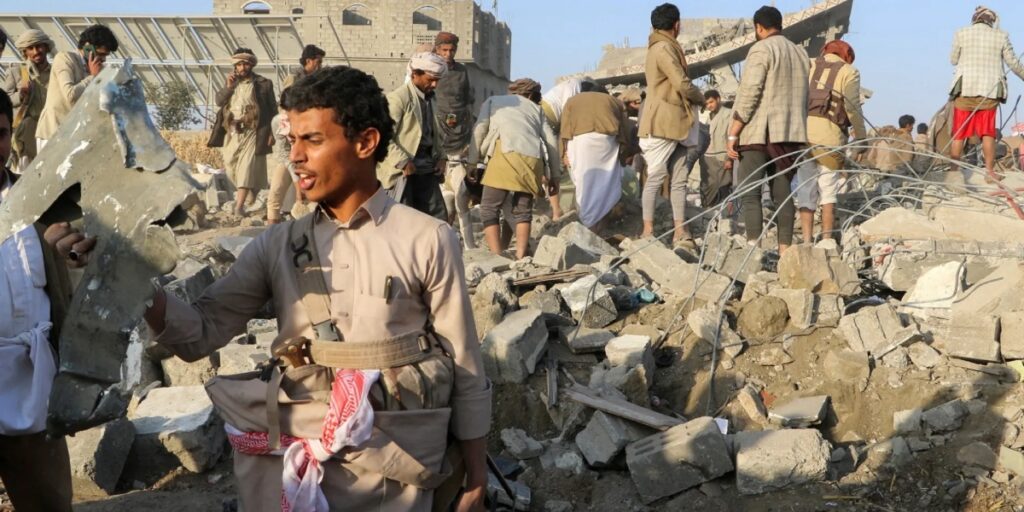The United States carried out overnight airstrikes on several locations inside Yemen, including the capital Sanaa and Houthi stronghold Sadaa, beginning shortly after midnight on Sunday. A report by Reuters said the Houthi-run Health Ministry stated that over 100 were injured and that at least 53 people, including five women and two children, had been killed.
Former US president Donald Trump warned that the Houthis must stop their attacks on international ships in the Red Sea- one of the busiest shipping lanes- or face severe retaliation. “Hell will rain down like nothing you have seen before,” said Trump. US Secretary of State Marco Rubio, in an interview with CBS News, emphasized these airstrikes would go on until the Iran-backed Houthis would not be allowed to attack commercial vessels anymore. He mentioned that in the previous 18 months, the Houthi group has attacked US naval ships through 174 direct attacks and commercial ships through 145 direct attacks, most of which were precision-guided weapons.
The Houthis had halted their attacks after the Gaza ceasefire in January. But, last week, they vowed to resume their offensive against Israeli vessels after Israel restricted humanitarian aid into Gaza. No attacks on any ships before the US strikes were reported with such declarations, though. Waltz, Trump’s national security adviser, added that the US strikes took out several top-ranking Houthi commanders but did not identify any or provide evidence.
In retaliation for the airstrikes, the Houthis vowed to “meet escalation with escalation”. On Sunday, the group launched 11 drones and at least one missile at the USS Harry S. Truman carrier strike group. All of these were intercepted by the US Air Force and Navy, and no damage was done. While the Trump administration holds Iran accountable for Houthi aggression, Tehran has denied any involvement and rejected US attempts to dictate its foreign policy.
Edited by Saumya Sharan


